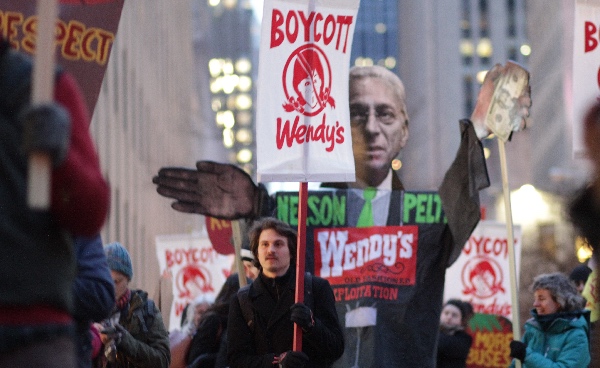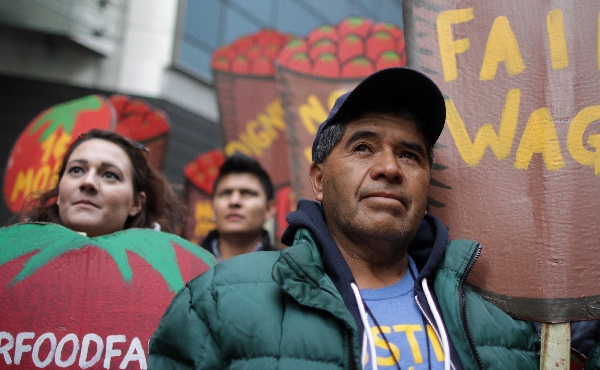
A Special Comment on the Democratic Presidential Primary Race and the Fair Food Program:
In recent days, the Democratic presidential primary race has cast a surprising amount of public attention on the CIW and the Fair Food Program. That attention has been generated both by a powerful five-minute video released this week by one of the candidates that revolves around the profound changes brought to the lives of tens of thousands of farmworkers through the Fair Food Program, and by a brief mention of our work in last night’s Democratic debate in Miami.
We are fortunate to be able to count both Democratic presidential candidates as friends of the CIW and longtime supporters of our work. Senator Sanders traveled to Immokalee in 2008 to speak with workers and then held a hearing in the United States Senate later that year that gave our Campaign for Fair Food a crucial push at a very important juncture in our history. Secretary Clinton, while at the State Department, cited our work as a model for an important new supply chain focus in the Department’s anti-trafficking efforts, and has twice recognized the unique power of the Fair Food Program to eliminate longstanding human rights abuses in the fields and in corporate supply chains more broadly. First, in 2010 when she was Secretary of State, she awarded the CIW the US State Department’s Trafficking in Persons Hero Award for our fight against modern day slavery, and in 2014 she honored us with the Clinton Global Citizen Award.
We deeply appreciate both Secretary Clinton’s and Senator Sanders’ longstanding support for the Fair Food movement and for farmworkers’ fundamental human rights.

In fact, the current conversation around the Fair Food Program in the presidential campaign has, once again, brought much-needed attention to our work at a crucial moment. Just this past week, we launched a national boycott of Wendy’s for two key reasons: 1) Wendy’s stands alone as the last of the five major US fast food corporations to refuse to join the Fair Food Program, and 2) Wendy’s has not only refused to join the FFP, but has stopped buying tomatoes from Florida altogether following the implementation of the Fair Food Program there. Rather than support US growers setting new standards for human rights in the agricultural industry, Wendy’s took its tomato purchases to Mexico, where the widespread denial of human rights in the produce industry — the subject of an in-depth expose by the Los Angeles Times just one year ago — goes effectively unchecked. We can only hope that this new wave of attention to the unique success of the CIW’s worker-driven social responsibility approach will help focus pressure on Wendy’s to do the right thing and join the Fair Food Program.
